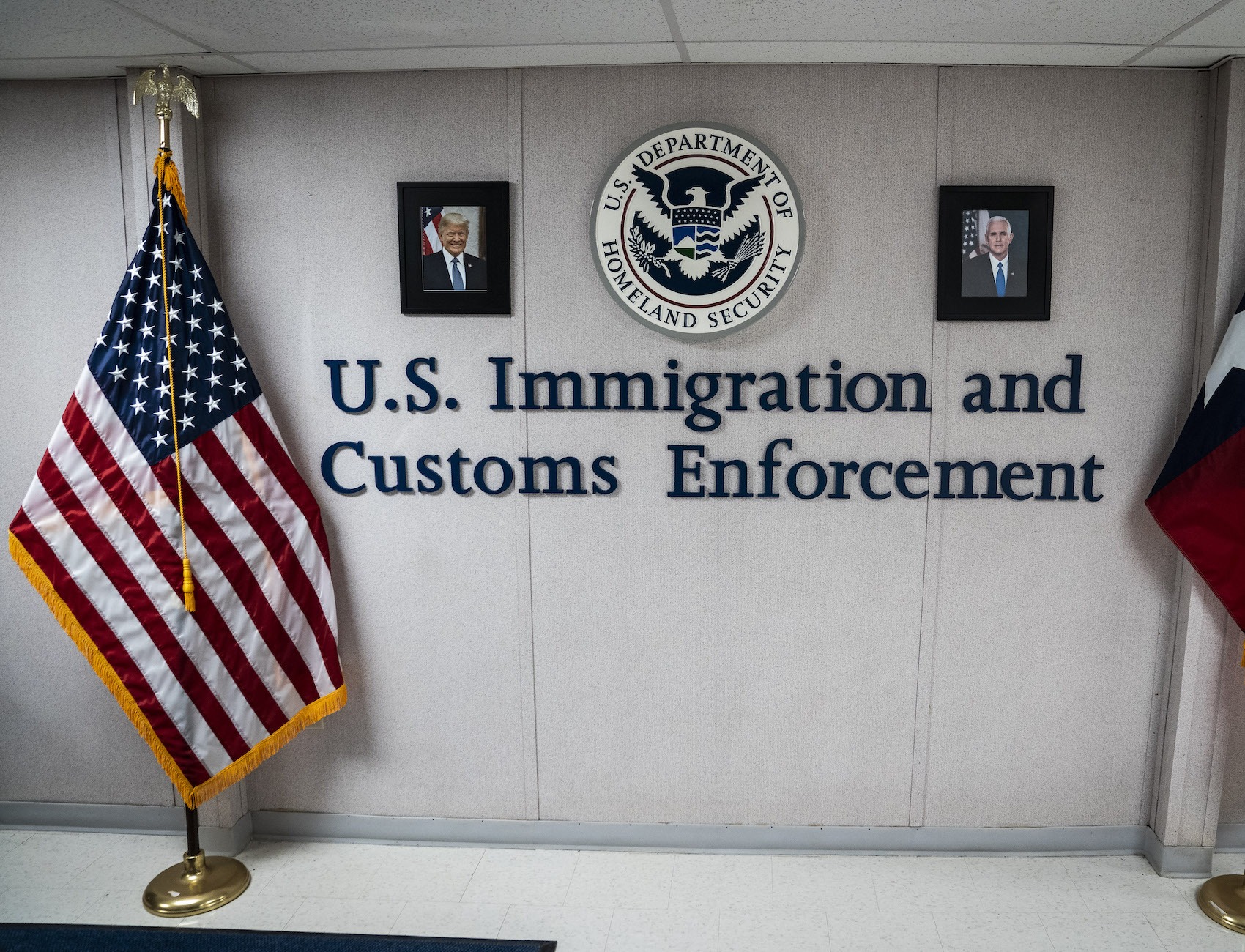ICE Detainees Launch Hunger Strike Over Coronavirus Fears
Conditions at the Newark jail where the strike is taking place were dire even before the threat of COVID-19.

Fearing the new coronavirus will soon reach them, immigrants detained at Essex County Correctional Facility in Newark, New Jersey, launched a hunger strike Tuesday demanding their immediate release. “If we were to be infected,” they said in a statement released through their attorneys, “everyone would rather die on the outside with our families than in here.”
News of the strike broke even as Immigration and Customs Enforcement officials announced that they would be scaling down the agency’s operations over public health concerns, though Acting Deputy Homeland Security Secretary Ken Cuccinelli called that into question on Thursday morning. While there has not yet been a confirmed case of COVID-19 in ICE detention, both a prisoner and a corrections officer at nearby Rikers Island tested positive for COVID-19 this week, and other viruses have ripped through ICE facilities in the past.
The strikers did not demand particular conditions of release, according to the New York Immigrant Family Unity Project (NYIFUP), a coalition of legal organizations providing representation to detained immigrants.
“The point of this is to ask for release,” they said, “meaning on bond, bracelet or the people with final deportation orders that actually want to be deported get them on their plane ASAP.”
NYIFUP said it was still unclear how many people were participating in the strike. WNYC/Gothamist reported that at least 10 people were participating.
The organizers are attempting to spread the strike through the whole facility, including to workers at the jail. “We are asking our fellow brothers in ICE [custody] to join us. We are also asking the kitchen workers that work in the main kitchen downstairs to not go to work,” the strikers said. “There is power in numbers,” they continued. “This is a fight not only for our freedom but also for our health and safety.”
“It’s a call for action, for people on the outside to support the currently incarcerated,” Sophia Gurulé, an immigration attorney with Bronx Defenders, told The Appeal. “It’s not every day that people incarcerated in these jails are organizing for their own liberation, trying to reunite with their families, their communities. At least in my experience, it’s unprecedented.”
“They’re calling on us to help them in a moment of a global pandemic,” Gurulé continued. “Incarcerated people, people with criminal convictions, are the first to be forgotten. For them to self organize, with all the potential for retaliation, so much of which we can’t even know about—it’s on us to support them.”
To slow the spread of COVID-19, health authorities have recommended frequent hand washing and maintaining a distance of at least six feet from others. People in jails are unable to follow these guidelines, held in close proximity to each other and often not provided with soap or hand sanitizer. Advocates for the incarcerated have warned that the virus could spread rapidly inside jails and prisons, producing large numbers of infected patients that could overwhelm the health system.
Conditions at Essex County Correctional were dire even before the threat of COVID-19. In a report released last year, the Department of Homeland Security’s Office of Inspector General found spoiled food, arbitrary strip searches, and bathrooms “permeated” with mold. “These environmental conditions present health risks as mold and mildew growth, for example, can lead to serious health issues for detainees, including allergic reactions and persistent illnesses,” the report stated.
ICE facilities are required to provide detainees with free soap and other toiletry items. The OIG report found that detainees were not provided with soap and had to purchase it through the commissary, in violation of that standard.
Neither Essex County Correctional Facility nor Immigration and Customs Enforcement responded to requests for comment.
